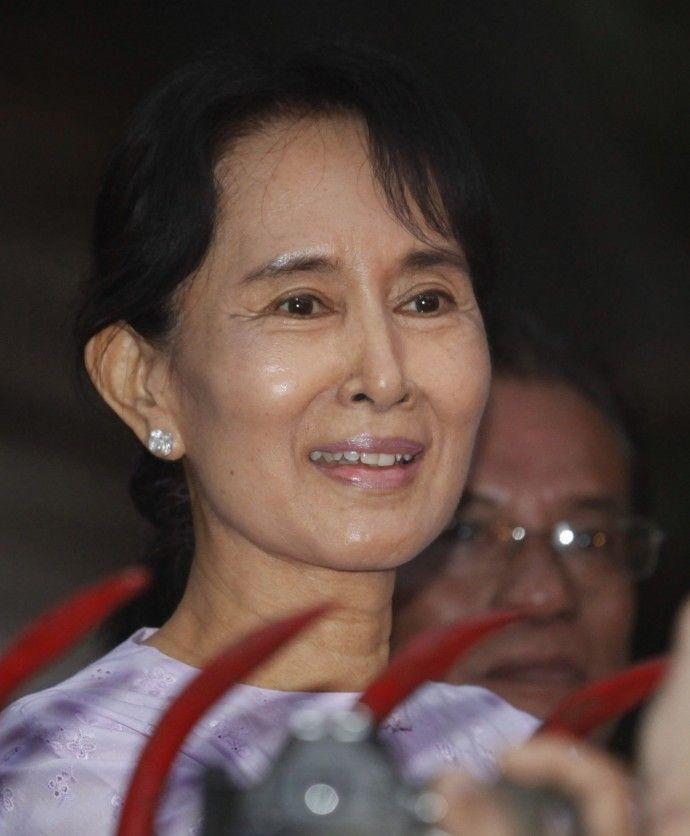Myanmar's Aung San Suu Kyi freed at last, followers rejoice in Yangon

Pro-democracy leader Aung San Suu Kyi has been freed by Myanmar's military junta. Security forces, on Saturday afternoon, removed the barricades near her residence in Yangon. Amid the cheers of jubilant supporters in their thousands, a smiling Suu Kyi, dressed in a traditional lilac dress, addressed the crowd waiting anxiously for her release.
Suu Kyi, the leader of Burma's National League for Democracy announced that she would be meeting the supporters at her party head quarters on Sunday.
There is a time to be quiet and a time to talk. People must work in unison. Only then can we achieve our goal, the 65-year-old Noble Peace Prize laureate said.
We have not seen each other for a long time. There are so many things to talk about.
Suu Kyi has been under house arrest for over 15 of the past 20 years. Her house arrest term expired on Saturday. During her detainment the NLD leader remained cut off from her supporters with no formal means of communications.
Her party, which is proscribed by the government, also boycotted the recent polls in the country to which the junta-backed Union Solidarity and Development Party (USDP) claimed an overwhelming victory.
Daw Aung San Suu Kyi (aka) Daw Suu, as she is called, is the daughter of General Aung San, a Burmese revolutionary and the founder of the Communist Party of Burma. She led the NLD to a landslide victory in the 1990 vote.
Analysts believe that Suu Kyi's release could give her a second chance to cultivate a new political strategy, and build an alliance with the opposition groups to contest the USDP and the army generals. She is also expected to put pressure on the government to release the estimated 2,000 political prisoners held by the army.
Reports earlier also stated that Suu Kyi could refuse the release order if it was a conditional one. However the details of the release order are awaited.
© Copyright IBTimes 2025. All rights reserved.




















